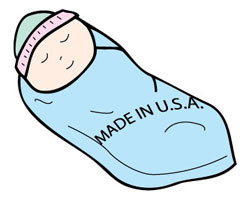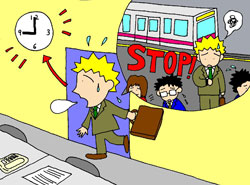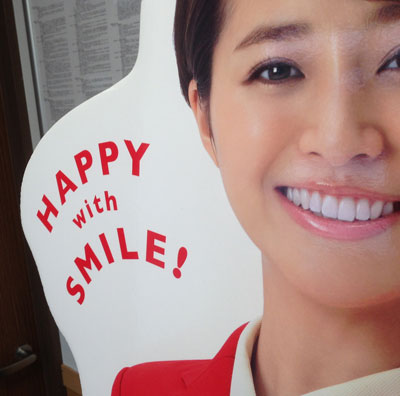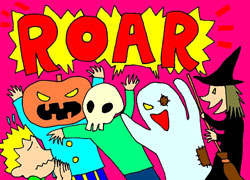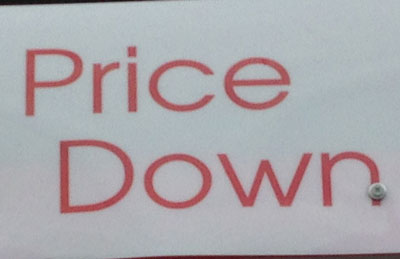
X Price Down
Tim says:
This is common “Japanese English”. We can, of course, say “the price went down,” but “price down” is not a natural English expression.
Of course, sometimes Japanese English expressions get borrowed into English, such as the gaming expression “level up”! But so far, “price down” has not become English!
O Lower Prices
Ayumi says:
季節の変わり目のセールではよく見かける表示です。
Price Down
priceは名詞で、downは副詞で、、、よくわからない組み合わせ。
動詞と一緒にbring the price down / get the price downのように使うならばわかりますが、price downだけでは「値下げしました!」の意味の和製英語。
同様にlevel upも”improve”の意味の和製英語だと思っていたのですが、Timによるとこれは日本語から「レベルアップ?」してゲームなどで使われる英語の表現になっているとのこと。
あまりに日常的に使われていると間違いもそのうち正しくなってしまうこともあるようです。
田中亜由美は「TOEICテスト クロストレーニング PART 1・2」などの本は販売中!ブログはこちら.
周囲にある英語を見て、果たしてそれが正しい英語なのだろうかと感じる英語はありますか?「あの英語は絶対に間違っている」という英語の表記はありますか?看板の写真を撮って、Machigai.comに送りましょう!とんでもない英語だったら、このコーナーで出します!


